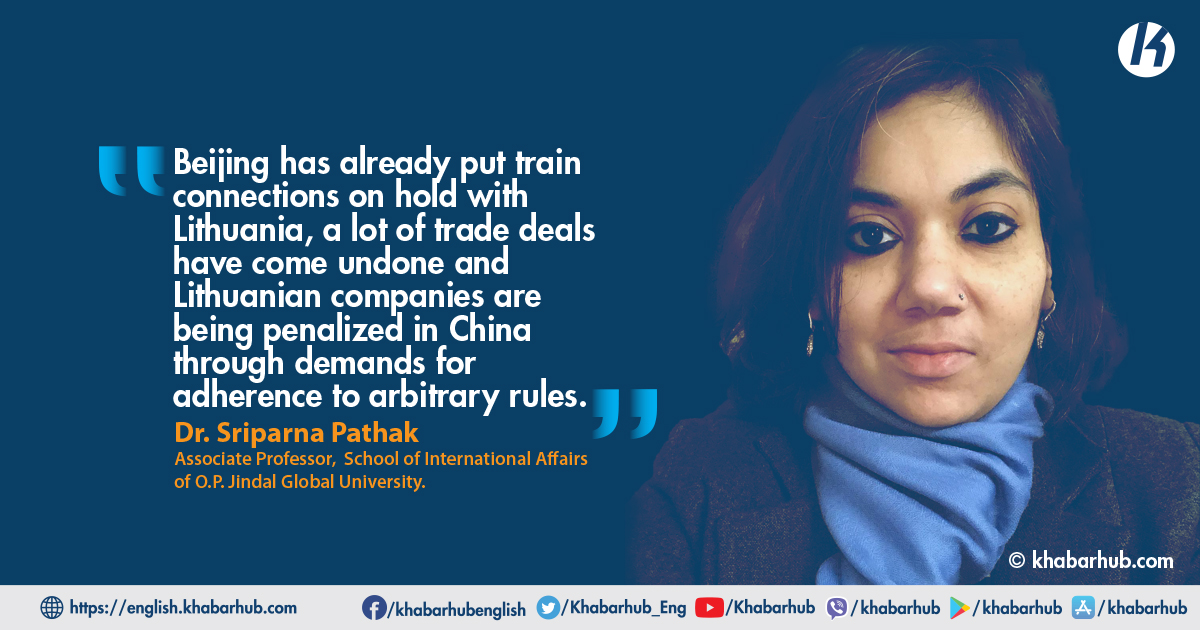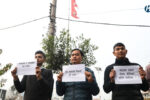As China’s economic stature continues growing and grows more rapidly amidst a pandemic that originated in Wuhan; as public health systems and economies across the globe come crashing over and over again, China’s stances in international relations have become increasingly aggressive.
This aggression has even reached levels of hostility. Examples of this include China’s relations with the European Union (EU) which in the last few months have reached their lowest since 1989.
China decided to blacklist ten EU individuals and four entities in March as Brussels sanctioned Chinese officials over human rights abuses in Xinjiang.
The Chinese foreign ministry even went to the extent of stating that the blacklisted members of the European Parliament severely harm China’s sovereignty and interest and maliciously spread lies and disinformation.
A fallout of this was witnessed in May this year as the European Parliament decided to freeze the ratification of the Comprehensive Agreement between the EU and China which was celebrated a few months ago by both sides as being an important milestone of Sino-European relations.
In addition to a deterioration in relations at the level of the state, a Pew survey also showed that unfavorable views on China have reached record heights in several European countries.
In addition to an overall deterioration in relations with the EU, China’s relations with several individual European countries are also on a downward spiral.
Beijing has already put train connections on hold with Lithuania, a lot of trade deals have come undone and Lithuanian companies are being penalized in China through demands for adherence to arbitrary rules.
A row between Lithuania and China erupted last month when Taiwan which China claims as a part of its territory under the One Country Two Systems policy stated that it was setting up a representative office in Lithuania under the name of ‘Taiwan’ instead of ‘Taipei’.
This was considered by Beijing as a diplomatic insult and protesting the move, Beijing asked Lithuania’s envoy, Diana Mickeviciene to leave Beijing.
In response, Lithuania expressed regret over Beijing’s decision and stated that while Vilnius respected the principle of one China, Lithuania is determined to develop mutually beneficial relations with Taiwan as well.
The state-run Chinese mouthpiece Global Times also stated in August that China’s trade authorities should carefully examine imports and exports with Lithuania and plan to sever ties with the country.
This sort of weaponization of trade is not something new, and China stopped exports of rare earth metals to Japan in 2020 over a row over the Senkaku Islands then. It did the same last year with Australia and stopped imports of Australian beef and wine among other products when Australia called for a probe into the origins of the COVID19.
Even though such sort of weaponization of trade is not new, China is resorting to its usage much more liberally than has been in the past.
In an international system that is already plagued by a pandemic that originated in China, more and more like-minded and democratic countries should come together if basic democratic values need to be preserved and countries shielded from Chinese bullying.
Beijing has already put train connections on hold with Lithuania, a lot of trade deals have come undone and Lithuanian companies are being penalized in China through demands for adherence to arbitrary rules.
Freight trains from China to Lithuania have already been suspended, and cross-border businesses have become hostage to the political tensions. Chinese state media has even hinted that Lithuanian farmers should forget their long-held dreams of selling milk to China.
What could also be a possibility is that China starts arbitrarily deporting employees of Lithuanian companies based in China. Under the recently amended National Security Law, private companies are needed to provide data regarding all economic activities to the Communist Party to China.
In addition to this, China has enacted the anti-sanctions law which allows Beijing to freeze the assets of Western companies and arbitrarily deport employees. China could very well use these to target Lithuania.
The problem emanates because China which always had a dismal track of human rights now wants other countries to not just accept its deplorable standards of human rights but also adapt their values to Chinese ones.
Forced labor in Xinjiang makes Chinese products unacceptable, and Lithuania, a member of the democratic club had objected to the import of cotton from Xinjiang, first irking Beijing. Denmark, Finland, Estonia, Latvia, Lithuania, Norway, and Sweden issued a statement in May expressing grave concern at the human rights situation in Xinjiang.
Chinese state-run media which has been threatening using China’s position as a big market against small countries like Lithuania to force them to give up their democratic values and toe the Chinese line nevertheless have forgotten that while China may be the second-largest producer of cotton, other avenues for import remain. For example, Uzbekistan has emerged as a preferred cotton supplier as buyers turn away from China.
In a show of solidarity, 13 chairs of foreign affairs committees from 11 European countries along with the chairman of the US Senate Foreign Relations Committee, Bob Menendez stated that they strongly condemn the political, diplomatic, and economic pressure of China on Lithuania.
In an interview for the channel RT English, a Lithuanian member of Parliament stated on September 17 this year, that Lithuania stands up for Taiwan and even compared hostile Chinese tactics to erstwhile Soviet Union’s strict control and propaganda in Lithuania and how they broke away from that kind of hostility.
In an international system that is already plagued by a pandemic that originated in China, more and more like-minded and democratic countries should come together if basic democratic values need to be preserved and countries shielded from Chinese bullying.
(Dr. Sriparna Pathak is an Associate Professor in the School of International Affairs of O.P. Jindal Global University)









Comment